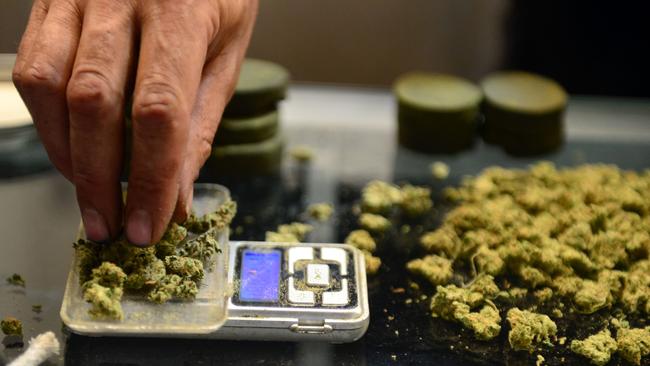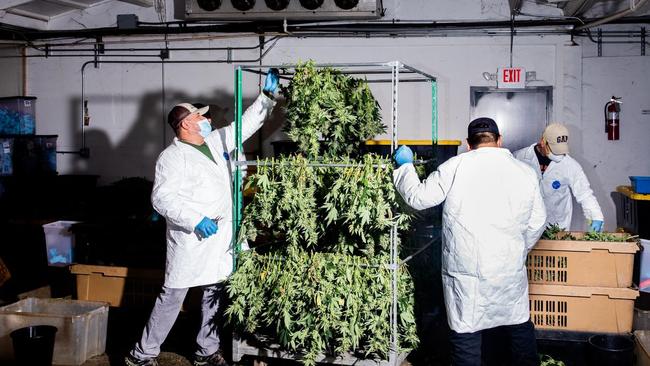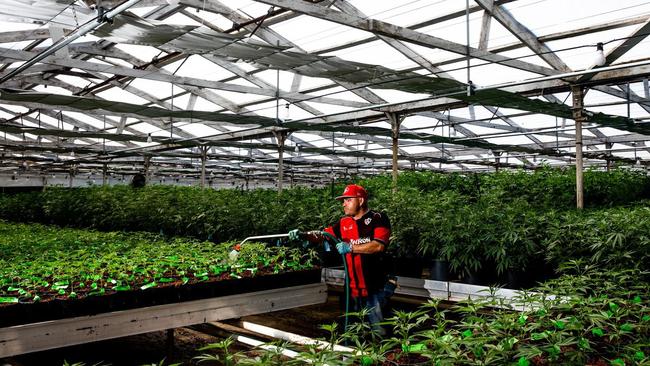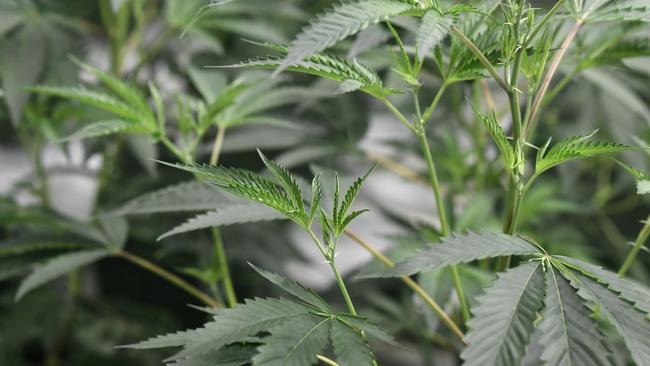California’s cannabis experiment goes to pot
The market is ‘screwed-up’ by being legal, says Nikki Lastreto, a cannabis grower in California since the days police helicopters swooped over her illegal crops.

In the days before Proposition 64, the voter initiative that legalised marijuana in California, Nikki Lastreto estimated that there were 10,000 illegal growers tucked away in the hills of Mendocino County in the state’s north.
In 2016 a pound (454 grams) of cannabis sold for about $US4000 (currently $6450). Today it fetches between $US300 and $US600. The drop is partly the result of a lack of licensed dispensaries, which led to a surplus of cannabis.
“It’s screwed-up,” said Ms Lastreto, 67, who has been growing cannabis in California since the 1970s, when she remembers running for cover as police helicopters swooped over her illegal crops.
She described northern California before legalisation as a haven for marijuana lovers, with users coming from around the world to sample the drug while supporting a thriving illicit economy. But Proposition 64 has swept all that away.
“It was a regular, steady economy,” Ms Lastreto said. “When it was illegal, we really had it down. We had a distribution system that worked very, very well. We had sale systems that worked very well.
“Everything went smoothly, except for the fact you could get busted. And there was always that fear. Now it’s changed, with so many rules and regulations. Honestly, I think I’m more afraid now.”

Ms Lastreto, like most of those who make up California’s legal industry, laments that the golden vision promised to voters who chose to lift the prohibition on marijuana has not materialised. Hopes of a thriving industry in which marginalised communities disproportionately harmed by the war on drugs prospered have been dashed.
Instead California has a seemingly unstoppable black market whereas legal growers struggle to turn a profit while abiding by the rules, with heavy taxes and regulations blamed. The underground industry is estimated to be worth $US8 billion a year, roughly double the amount from legal sales.

Ms Lastreto said that as the federal government relaxed cannabis laws – during the week President Joe Biden pardoned thousands of people convicted of marijuana possession – it should learn from California’s mistakes. “These rules and regulations are just too much,” she said.
“They’re killing the goose that lays the golden eggs.
“Anybody who’s a serious smoker or imbiber is going to go to their guy down the block that they’ve gone to for the last 20 years, they’re going to get it for cheaper and they’re not going to have to pay the taxes.”
Ms Lastreto and her partner Swami Chaitanya, 79, have been growing high-quality cannabis for the medicinal market since 2003. They are based in a remote stretch of the Emerald Triangle, the region of northern California known for producing marijuana.
During her long involvement in the illicit trade she recalls selling marijuana on the streets of San Francisco as a 15-year-old. In an attempt to make their Swami Select business sustainable, Ms Lastreto and Mr Chaitanya are preparing for the launch in December of Club Swami, offering members curated deliveries of their finest strains, marketing the product to cannabis connoisseurs happy to pay extra for a high-end experience.
At the opposite end of the spectrum many illegal operators produce poor-quality marijuana and cause environmental damage with their unchecked crops.
The black market is thriving thanks in part to the ubiquitous unlicensed cannabis shops that have popped up around California. Often operating behind unassuming store fronts with only a green cross on a sign outside to signal their true purpose, the businesses are a headache for the police.

Vito Ceccia, the detective superviser who oversees enforcement of unlicensed cannabis shops for the Los Angeles Police Department, said law enforcement was limited in what it could do to stop the spread of the black market.
While Proposition 64 lowered the penalties related to marijuana, critics say it emboldened criminals and removed the deterrence of lengthy prison sentences. Detective Ceccia believes the legislation needs to be reworked. This year his team has seized illicit cannabis worth $US2.7m, taken more than 30 weapons off the streets and made more than 500 arrests. But unlicensed cannabis shops continue to crop up throughout Los Angeles.
“The dilemma with cannabis is that it is such a profitable black market,” Detective Ceccia said. “I don’t know any other narcotic, including heroin, including cocaine, that you can so easily grow. And anyone can do it.”
The illicit stores are not only a problem for legitimate businesses: robbers view them as easy targets, as owners cannot call the police.
California’s authorities have attempted to restore order to the market. The state’s top prosecutor announced this week that he is expanding a seasonal program designed to disrupt illegal cannabis farms into a year-round effort.
For Ms Lastreto, the help cannot come soon enough.
The Times



To join the conversation, please log in. Don't have an account? Register
Join the conversation, you are commenting as Logout